
Safer Recruitment - Children's Care - Intermediate Level
Course Overview Safer Recruitment - Children's Care - Intermediate Level training course is a training session for people working with children. This course is for those working in Safer recruitment, safer recruitment is a set of practices to help make sure your staff are suitable to work with children. It’s a vital part of creating a safe and positive environment and making a commitment to keep children and safe from harm. The course features a range of group work, activities and discussions to enhance learner skill development. This course offers a blended learning approach including a short scenario, a workbook, infographics and a classroom style training session. This course can be delivered in face-to-face classroom environment or a virtual classroom via a webinar: on PC, laptop etc. For mobile phones it is recommended to use the app for IOS or Android devices. Aims & Objectives Assessing the risks that safer recruitment can pose to children Support your team in Managing Safer Recruitment Understands why it’s important to develop child protection and safeguarding measures and that you have support from the highest level in your organisation Develop a robust safeguarding and safer recruitment policy Outline expectations and behaviours that are acceptable within your organisation Selecting the right staff Course Audience Psychologists, Teachers, Speech Therapists, Learning Support Assistants, Residential Social Workers, Health Care Workers, Social Care Workers, Support Centre Practitioners, Youth Workers, Support Worker, Nursing Staff, Children’s Residential Care Workers.






Attachment - Children's Care - Essential Level
Course Overview Attachment - Children's Care - Essential Level training course aims to provide learners with an understanding and awareness of Attachment and encourages each learner to reflect on their own personal attachments and their practice in relation to working with individuals with Attachment Disorders. The course explores the background of Attachment and how early Theorists developed the concepts that underpin Attachment Theory that we still use today. The course features a range of group work, activities and discussions to enhance learner skill development. This course can be delivered in face-to-face classroom environment or a virtual classroom via a webinar: on PC, laptop etc. For mobile phones it is recommended to use the app for IOS or Android devices. Aims & Objectives Define Attachment Disorder Be aware of the underpinning theory of Attachment Identify barriers for Children with insecure attachments Recognise and manage behaviours linked to negative attachments Suggest Strategies to support children with poor Attachments Course Audience Health Care Workers, Social Care Workers, Children’s Centre Practitioners, Education Support Staff and Youth Workers
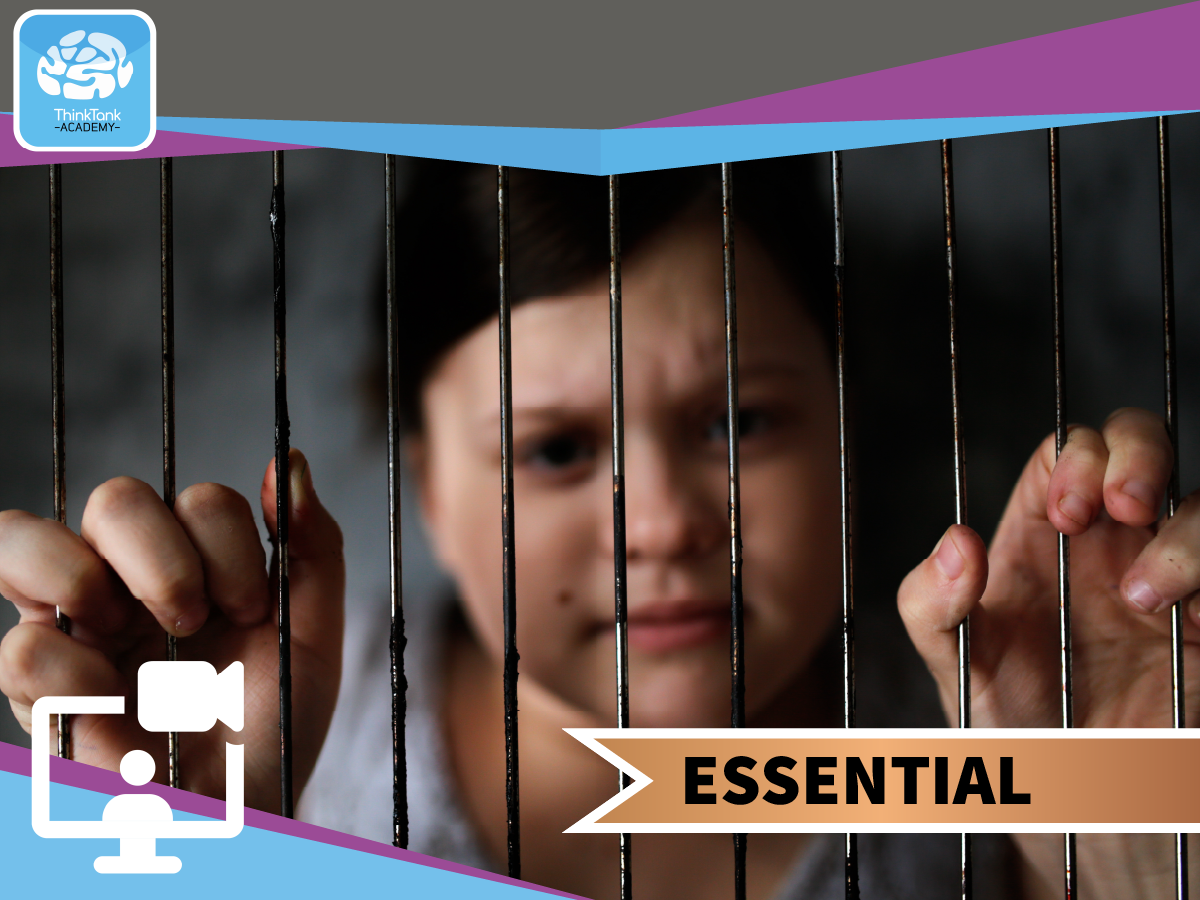





Trauma - Children's Care - Essential Level
Course Overview Trauma - Children's Care - Essential Level training course is designed to aid understanding of Trauma and how it can affect the lives of people long after the event that caused it. An understanding of what causes it will be provided along with techniques and strategies to reduce the negative impact it leaves on people. The activities encourage reflection that can be implemented into practice. Then, the quiz is completed at the end of the course to consolidate learning. A session re-cap is held where the learner can ask any further questions and key factors are stated by the Tutor. Learners are given the opportunity to reflect on what they have gained from the programme. The course features a range of group work, activities and discussions to enhance learner skill development. This training session can be accessed via a link and is accessible from a range of devices including IOS and Android platforms. Aims & Objectives Define Trauma and how the body responds to it Give examples of traumatic experiences and reactions to Trauma Discuss the effects of Trauma on Children and Young People Highlight trauma triggers and responses Give an overview of trauma informed care Discuss that challenges that staff can face and give advice on how to help Children and Young People and the importance of self-care Course Audience Health Care Workers, Social Care Workers, Nursing staff, Day Care/Centre workers, Home Care Staff, Agency staff.
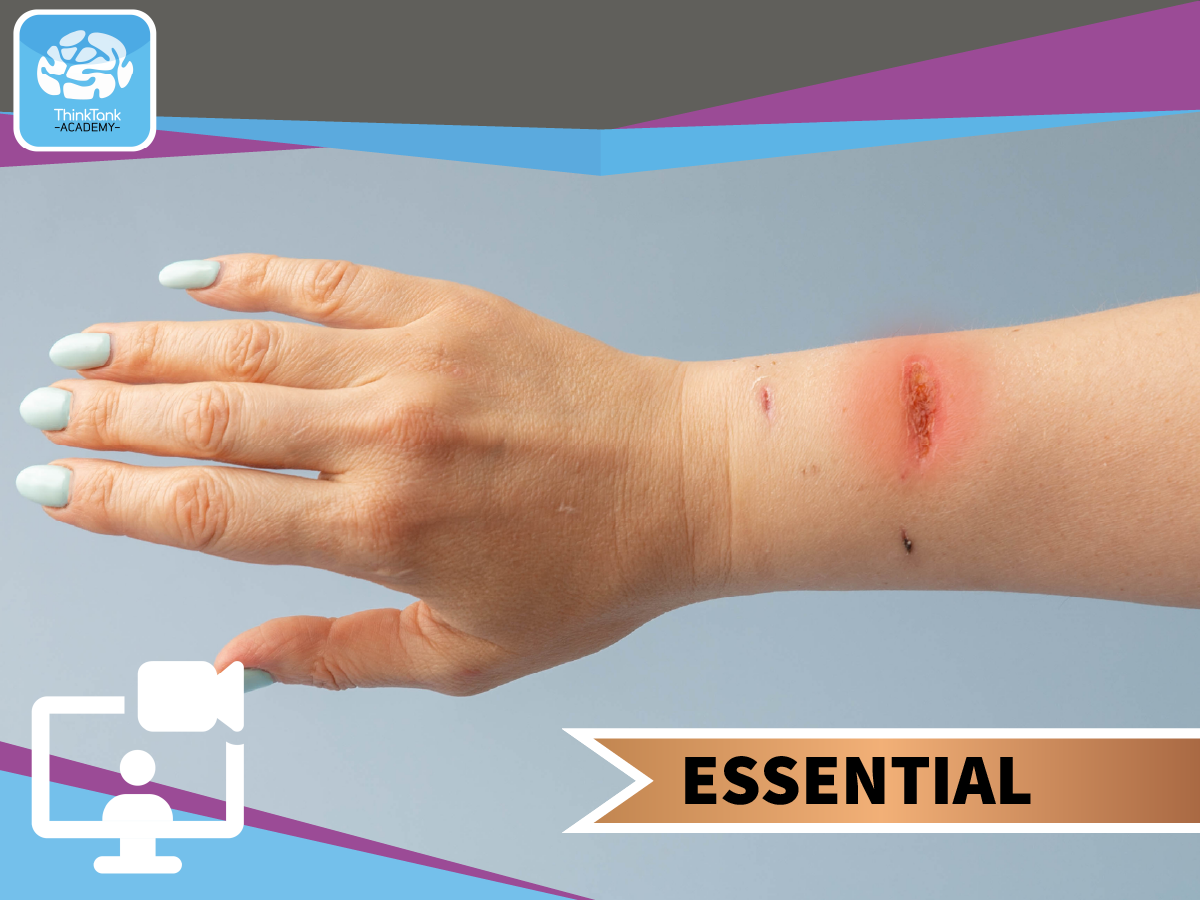


Self-Harm Awareness - Children's Care - Essential Level
Course Overview Self-Harm Awareness - Children's Care - Essential Level training course outlines the basic understanding of self-harm and suicide. It explores ways to prevent and reduce harm caused by children and young people within the work environment. Included are different strategies and techniques to be referred and incorporated into practice. Learners will be able to identify common signs and symptoms of an individual who self-harms as well as be able to relate to the likelihood of individuals to attempt suicide. It has been designed to develop tools and techniques to be used to respond to self-harm and suicide ideation. This course can be delivered in face-to-face classroom environment or a virtual classroom via a webinar: on PC, laptop etc. For mobile phones it is recommended to use the app for IOS or Android devices. Aims & Objectives Give an understanding of self-harm and suicide Understand the associated risk factors Explore harm minimisation and prevention Increase our confidence Provide tools and techniques to respond to suicide ideation and self-harm Resources & Links Course Audience This course is designed for people who work in the social care sector with children and young people who may be at risk of self-harm or suicide.
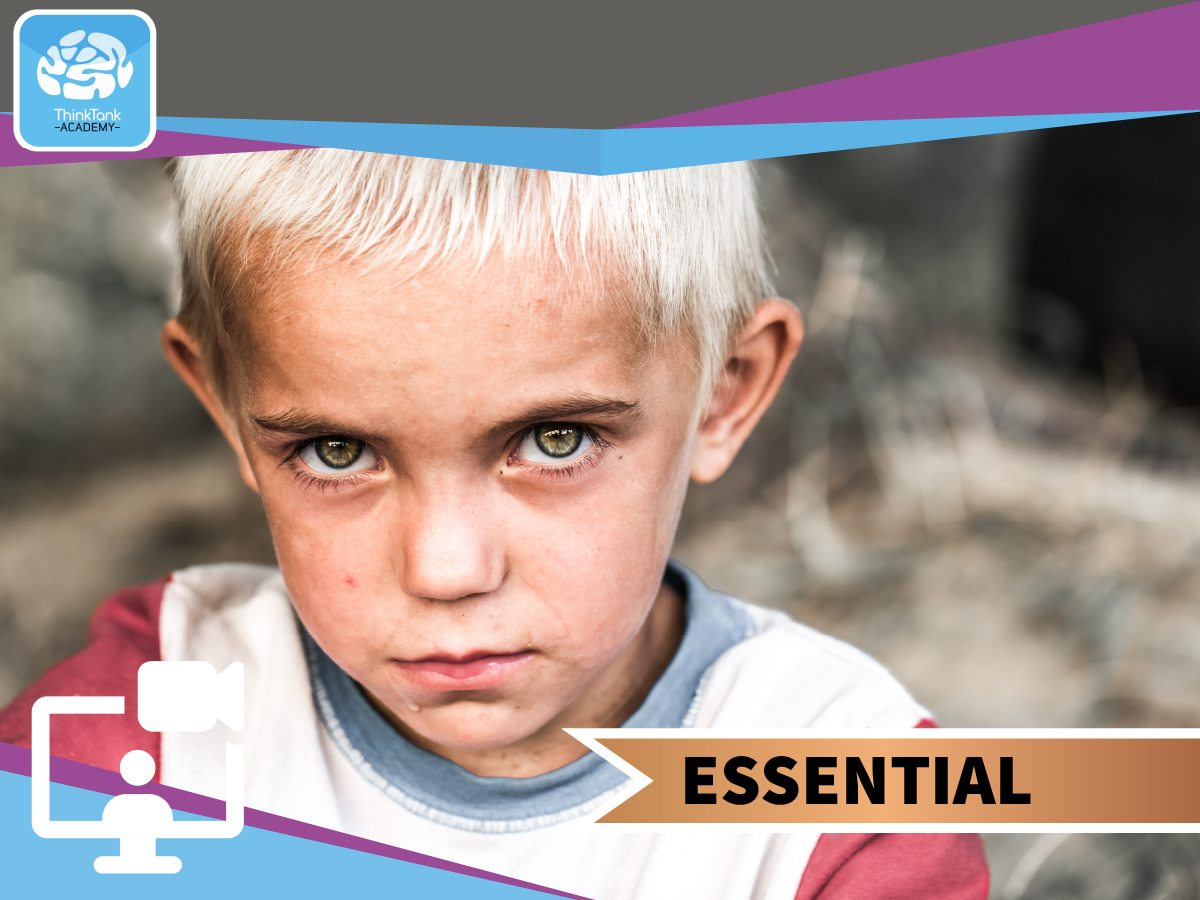


Exploitation Awareness - Children's Care - Essential Level
Course Overview Exploitation Awareness - Children's Care - Essential Level training course is designed to highlight the fact that Child Exploitation refers to a child or young person being used for someone else’s gain and that Child exploitation is a form of abuse which can involve sexual, abusive or manipulative behaviour. This course supports practitioners to recognise the indicators and respond appropriately to individuals that are being Exploited. It includes the ‘grooming process’ and how perpetrators manipulate young people into inappropriate relationships and risky behaviours It incorporates the relevant legislation around Exploitation and provides advice on how to support children and young people who have suffered this type of abuse and some excellent resources around Exploitation and who we can signpost to. This course can be delivered in face-to-face classroom environment or a virtual classroom via a webinar: on PC, laptop etc. For mobile phones it is recommended to use the app for IOS or Android devices. Aims and Objectives Give an understanding of the scale of the issue CSE and CCE Include a background of exploitation Recognise the stages of grooming Identify the signs of CSE and CCE Recognise the lessons learned from the Rotherham Raise awareness of County lines Push/ Pull Factors Protocols Resources & Links Course Audience All practitioners that engage with Children and Young People in the workplace (sports, education, health and social care, criminal justice, hospitality, retail, Guides/ Scouts, Volunteers etc).






Trauma - Children's Care - Essential Level
Course Overview Trauma - Children's Care - Essential Level training course is designed to aid understanding of Trauma and how it can affect the lives of people long after the event that caused it. An understanding of what causes it will be provided along with techniques and strategies to reduce the negative impact it leaves on people. The activities encourage reflection that can be implemented into practice. Then, the quiz is completed at the end of the course to consolidate learning. A session re-cap is held where the learner can ask any further questions and key factors are stated by the Tutor. Learners are given the opportunity to reflect on what they have gained from the programme. The course features a range of group work, activities and discussions to enhance learner skill development. This training session can be accessed via a link and is accessible from a range of devices including IOS and Android platforms. Aims & Objectives Define Trauma and how the body responds to it Give examples of traumatic experiences and reactions to Trauma Discuss the effects of Trauma on Children and Young People Highlight trauma triggers and responses Give an overview of trauma informed care Discuss that challenges that staff can face and give advice on how to help Children and Young People and the importance of self-care Course Audience Health Care Workers, Social Care Workers, Nursing staff, Day Care/Centre workers, Home Care Staff, Agency staff.






Attachment - Children's Care - Essential Level
Course Overview Attachment - Children's Care - Essential Level training course aims to provide learners with an understanding and awareness of Attachment and encourages each learner to reflect on their own personal attachments and their practice in relation to working with individuals with Attachment Disorders. The course explores the background of Attachment and how early Theorists developed the concepts that underpin Attachment Theory that we still use today. The course features a range of group work, activities and discussions to enhance learner skill development. This course can be delivered in face-to-face classroom environment or a virtual classroom via a webinar: on PC, laptop etc. For mobile phones it is recommended to use the app for IOS or Android devices. Aims & Objectives Define Attachment Disorder Be aware of the underpinning theory of Attachment Identify barriers for Children with insecure attachments Recognise and manage behaviours linked to negative attachments Suggest Strategies to support children with poor Attachments Course Audience Health Care Workers, Social Care Workers, Children’s Centre Practitioners, Education Support Staff and Youth Workers



Self-Harm Awareness - Children's Care - Essential Level
Course Overview Self-Harm Awareness - Children's Care - Essential Level training course outlines the basic understanding of self-harm and suicide. It explores ways to prevent and reduce harm caused by children and young people within the work environment. Included are different strategies and techniques to be referred and incorporated into practice. Learners will be able to identify common signs and symptoms of an individual who self-harms as well as be able to relate to the likelihood of individuals to attempt suicide. It has been designed to develop tools and techniques to be used to respond to self-harm and suicide ideation. This course can be delivered in face-to-face classroom environment or a virtual classroom via a webinar: on PC, laptop etc. For mobile phones it is recommended to use the app for IOS or Android devices. Aims & Objectives Give an understanding of self-harm and suicide Understand the associated risk factors Explore harm minimisation and prevention Increase our confidence Provide tools and techniques to respond to suicide ideation and self-harm Resources & Links Course Audience This course is designed for people who work in the social care sector with children and young people who may be at risk of self-harm or suicide.



Exploitation Awareness - Children's Care - Essential Level
Course Overview Exploitation Awareness - Children's Care - Essential Level training course is designed to highlight the fact that Child Exploitation refers to a child or young person being used for someone else’s gain and that Child exploitation is a form of abuse which can involve sexual, abusive or manipulative behaviour. This course supports practitioners to recognise the indicators and respond appropriately to individuals that are being Exploited. It includes the ‘grooming process’ and how perpetrators manipulate young people into inappropriate relationships and risky behaviours It incorporates the relevant legislation around Exploitation and provides advice on how to support children and young people who have suffered this type of abuse and some excellent resources around Exploitation and who we can signpost to. This course can be delivered in face-to-face classroom environment or a virtual classroom via a webinar: on PC, laptop etc. For mobile phones it is recommended to use the app for IOS or Android devices. Aims and Objectives Give an understanding of the scale of the issue CSE and CCE Include a background of exploitation Recognise the stages of grooming Identify the signs of CSE and CCE Recognise the lessons learned from the Rotherham Raise awareness of County lines Push/ Pull Factors Protocols Resources & Links Course Audience All practitioners that engage with Children and Young People in the workplace (sports, education, health and social care, criminal justice, hospitality, retail, Guides/ Scouts, Volunteers etc).






Trauma - Children's Care - Essential Level
Course Overview Trauma - Children's Care - Essential Level training course is designed to aid understanding of Trauma and how it can affect the lives of people long after the event that caused it. An understanding of what causes it will be provided along with techniques and strategies to reduce the negative impact it leaves on people. The activities encourage reflection that can be implemented into practice. Then, the quiz is completed at the end of the course to consolidate learning. A session re-cap is held where the learner can ask any further questions and key factors are stated by the Tutor. Learners are given the opportunity to reflect on what they have gained from the programme. The course features a range of group work, activities and discussions to enhance learner skill development. This training session can be accessed via a link and is accessible from a range of devices including IOS and Android platforms. Aims & Objectives Define Trauma and how the body responds to it Give examples of traumatic experiences and reactions to Trauma Discuss the effects of Trauma on Children and Young People Highlight trauma triggers and responses Give an overview of trauma informed care Discuss that challenges that staff can face and give advice on how to help Children and Young People and the importance of self-care Course Audience Health Care Workers, Social Care Workers, Nursing staff, Day Care/Centre workers, Home Care Staff, Agency staff.






Attachment - Children's Care - Essential Level
Course Overview Attachment - Children's Care - Essential Level training course aims to provide learners with an understanding and awareness of Attachment and encourages each learner to reflect on their own personal attachments and their practice in relation to working with individuals with Attachment Disorders. The course explores the background of Attachment and how early Theorists developed the concepts that underpin Attachment Theory that we still use today. The course features a range of group work, activities and discussions to enhance learner skill development. This course can be delivered in face-to-face classroom environment or a virtual classroom via a webinar: on PC, laptop etc. For mobile phones it is recommended to use the app for IOS or Android devices. Aims & Objectives Define Attachment Disorder Be aware of the underpinning theory of Attachment Identify barriers for Children with insecure attachments Recognise and manage behaviours linked to negative attachments Suggest Strategies to support children with poor Attachments Course Audience Health Care Workers, Social Care Workers, Children’s Centre Practitioners, Education Support Staff and Youth Workers
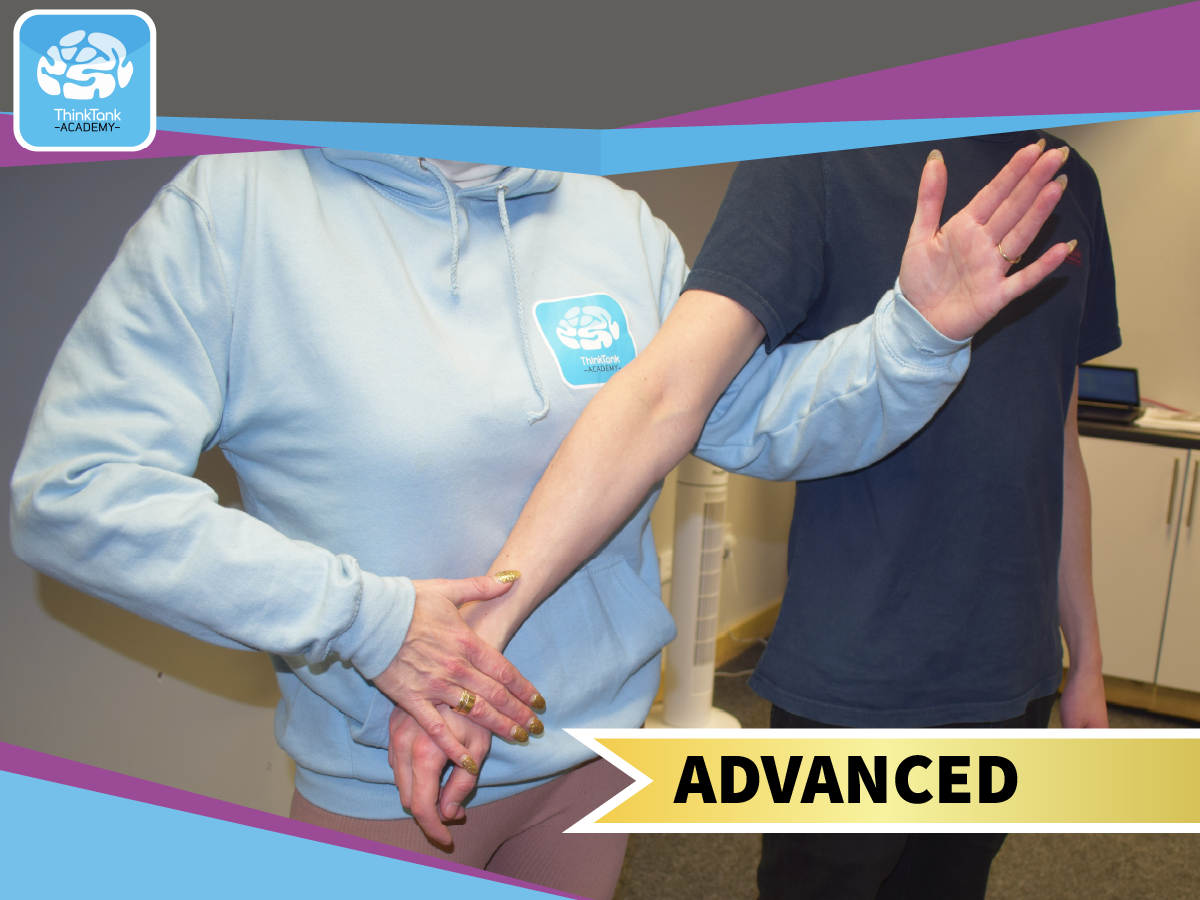

T.A.N.K. Positive Behaviour Support and Physical Intervention - Children's Care (Refresher) - Advanced Level
forthcoming


T.A.N.K. Positive Behaviour Support and Physical Intervention - Children's Care - Advanced Level
T.A.N.K. Positive Behaviour Support and Physical Intervention - Children's Care - Advanced Level THINK – ASSESS – NURTURE – KEEP CONTROL Course Overview T.A.N.K. is two-day, classroom-based training programme, designed specifically to help people working with children and vulnerable adults, who can often display challenging behaviour whilst in crisis. T.A.N.K. focuses on developing an understanding of how this behaviour can present itself in the care environment. It provides both theoretical and practical skills to help delegates respond positively employing strategies and interventions that can safely de-escalate situation, minimising the risk to themselves and young person. Delegates are supported to analyse different behaviours, dynamically risk manage situations, considering strategies and interventions to safely manage behaviour. Delegates will analyse and reflect on relationship between trauma attachment, mood, and behaviour leading to long-term improvement. The course features group work, practical activities, and discussion to enhance skills development. Our highly experienced Trainers are passionately dedicated to reducing the use of physical restraints, and although the use of restraints and physical intervention are included, this is as a last resort, only using these when all other strategies have proved unsuccessful. Aims and Objectives Interventions which impact positively on the delegate and the people they support Demonstrate how to positively reinforce good behaviour Reflect on positive and negative consequences of behaviour Provide a toolkit that delegates can use to provide safe and meaningful intervention Introduce the concept of social reinforcement and how this can work in care and support environments Course Audience Residential Care Workers, Health Care Workers, Social Care Workers, Children’s Centre Practitioners, Youth Workers, Teachers and Early Years Practitioners



Safer Recruitment - Children's Care - Intermediate Level
Course Overview Safer Recruitment - Children's Care - Intermediate Level training course is a training session for people working with children. This course is for those working in Safer recruitment, safer recruitment is a set of practices to help make sure your staff are suitable to work with children. It’s a vital part of creating a safe and positive environment and making a commitment to keep children and safe from harm. The course features a range of group work, activities and discussions to enhance learner skill development. This course offers a blended learning approach including a short scenario, a workbook, infographics and a classroom style training session. This course can be delivered in face-to-face classroom environment or a virtual classroom via a webinar: on PC, laptop etc. For mobile phones it is recommended to use the app for IOS or Android devices. Aims & Objectives Assessing the risks that safer recruitment can pose to children Support your team in Managing Safer Recruitment Understands why it’s important to develop child protection and safeguarding measures and that you have support from the highest level in your organisation Develop a robust safeguarding and safer recruitment policy Outline expectations and behaviours that are acceptable within your organisation Selecting the right staff Course Audience Psychologists, Teachers, Speech Therapists, Learning Support Assistants, Residential Social Workers, Health Care Workers, Social Care Workers, Support Centre Practitioners, Youth Workers, Support Worker, Nursing Staff, Children’s Residential Care Workers.
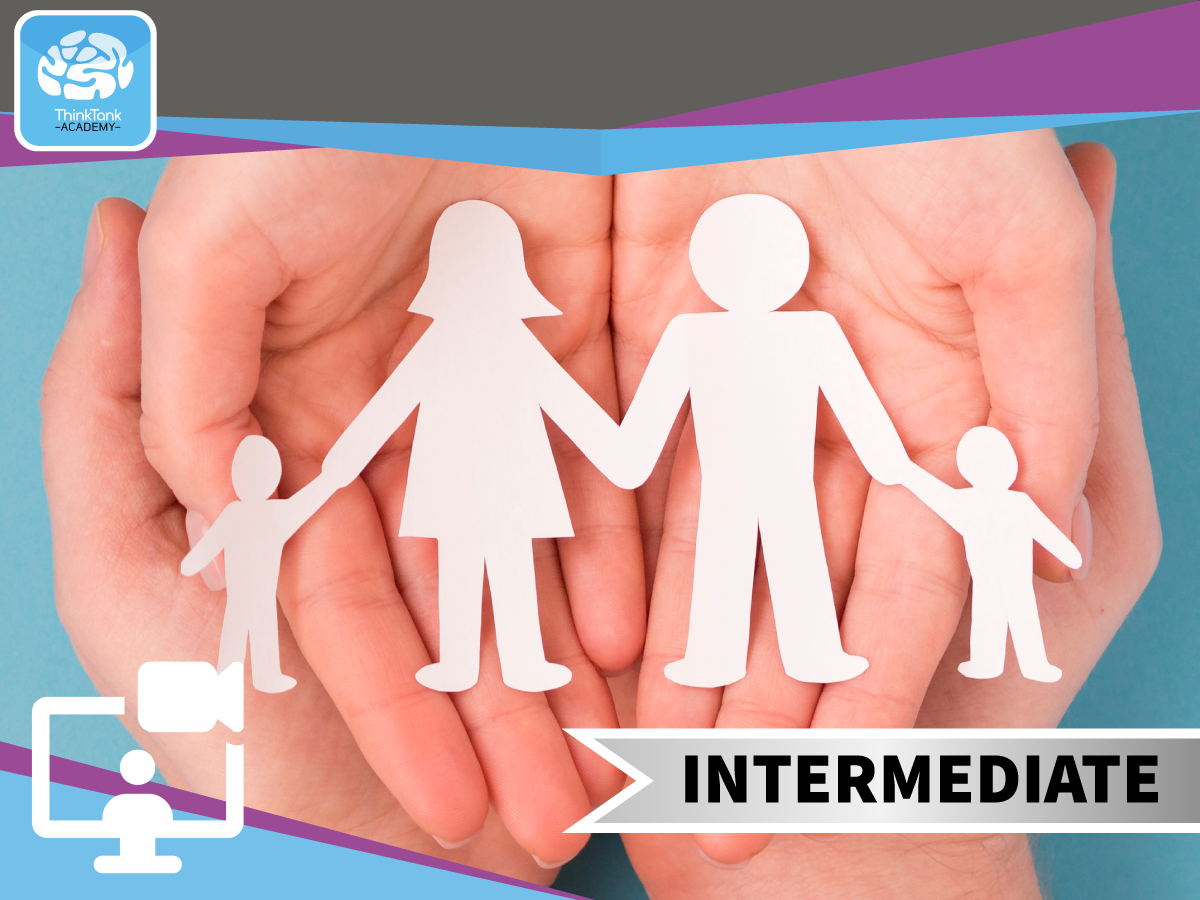

Safeguarding Children - Children's Care - Intermediate Level
Course Overview Safeguarding Children - Children's Care - Intermediate Level training course provides progression from the Safeguarding Children’s Essential Level course. This is a training session for people working with children. This course is for those working in children's residential care in order for them to have an understanding of the requirements around safeguarding, identifying abuse, being able to respond appropriately in situations where abuse is likely to occur and recognising the importance of reporting any suspected incidents. The course features a range of group work, activities and discussions to enhance learner skill development. This course offers a blended learning approach including a short scenario, a workbook, infographics and a classroom style training session. This course can be delivered in face-to-face classroom environment or a virtual classroom via a webinar: on PC, laptop etc. For mobile phones it is recommended to use the app for IOS or Android devices. Aims & Objectives Looks at legislation, guidance, policy and procedure relating to safeguarding Identifies points regarding making safeguarding personal Enables trainees to give examples and identify signs of possible abuse Understands how to report and respond to disclosures of abuse and how to support children at risk who make a disclosure Identifies the role of other agencies and who to contact Understands how to manage practice that helps to safeguard individuals from harm or abuse and also explain policy regarding monitoring Course Audience Psychologists, Teachers, Speech Therapists, Learning Support Assistants, Residential Social Workers, Health Care Workers, Social Care Workers, Support Centre Practitioners, Youth Workers, Support Worker, Nursing Staff, Children’s Residential Care Workers, Education workers.
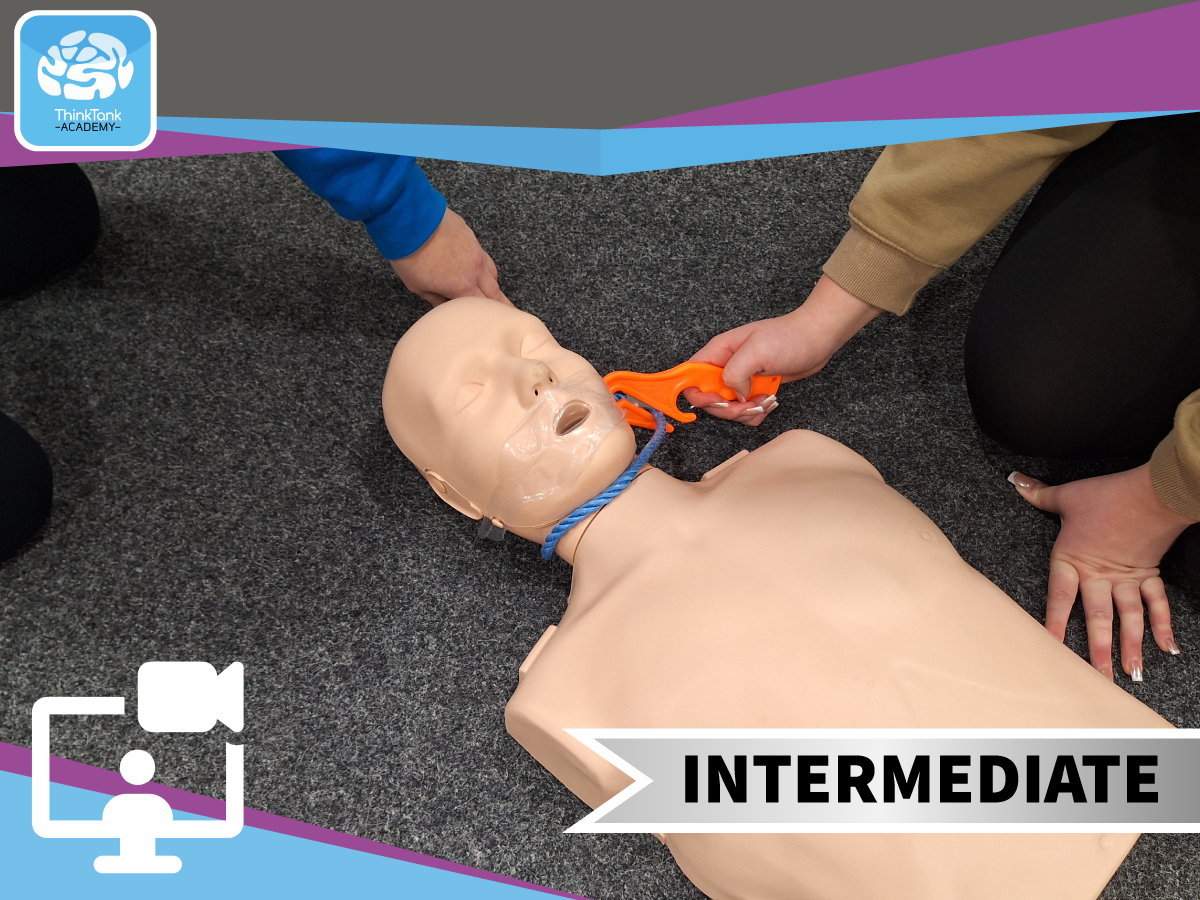

Self-Harm with Ligatures - Children's Care - Intermediate Level
Self-Harm with Ligatures - Children's Care - Intermediate Level Course Overview This course is for individuals who need a higher level of knowledge around the practice of self-harm. It aims to arm practitioners with the skills needed to recognise and understand both the reasons why people self-harm and the indictors that help us to recognise when people are self-harming also to help people replace the methods used with much safer ones (harm reduction). Also included is the less common practice of self-harming by way of ligatures. It is a very uncomfortable thing to support someone with and this part of the course informs staff of everything they will need to understand it, recognise it and act appropriately to people that use this practice. This course can be delivered in face-to-face classroom environment or a virtual classroom via a webinar: on PC, laptop etc. For mobile phones it is recommended to use the app for IOS or Android devices. Aims and Objectives Discuss the practice of self-harm including the use of ligatures Provide support for staff around the issue of self-harm and suicidality Help learners to understand the practice and the need for safer practice and harm reduction Provide facts and statistics around the topic Course Audience This course is designed for practitioners working with children and young people in the Health and Social Care Sector






Attachment - Children's Care - Essential Level
Course Overview Attachment - Children's Care - Essential Level training course aims to provide learners with an understanding and awareness of Attachment and encourages each learner to reflect on their own personal attachments and their practice in relation to working with individuals with Attachment Disorders. The course explores the background of Attachment and how early Theorists developed the concepts that underpin Attachment Theory that we still use today. The course features a range of group work, activities and discussions to enhance learner skill development. This course can be delivered in face-to-face classroom environment or a virtual classroom via a webinar: on PC, laptop etc. For mobile phones it is recommended to use the app for IOS or Android devices. Aims & Objectives Define Attachment Disorder Be aware of the underpinning theory of Attachment Identify barriers for Children with insecure attachments Recognise and manage behaviours linked to negative attachments Suggest Strategies to support children with poor Attachments Course Audience Health Care Workers, Social Care Workers, Children’s Centre Practitioners, Education Support Staff and Youth Workers






Attachment - Children's Care - Essential Level
Course Overview Attachment - Children's Care - Essential Level training course aims to provide learners with an understanding and awareness of Attachment and encourages each learner to reflect on their own personal attachments and their practice in relation to working with individuals with Attachment Disorders. The course explores the background of Attachment and how early Theorists developed the concepts that underpin Attachment Theory that we still use today. The course features a range of group work, activities and discussions to enhance learner skill development. This course can be delivered in face-to-face classroom environment or a virtual classroom via a webinar: on PC, laptop etc. For mobile phones it is recommended to use the app for IOS or Android devices. Aims & Objectives Define Attachment Disorder Be aware of the underpinning theory of Attachment Identify barriers for Children with insecure attachments Recognise and manage behaviours linked to negative attachments Suggest Strategies to support children with poor Attachments Course Audience Health Care Workers, Social Care Workers, Children’s Centre Practitioners, Education Support Staff and Youth Workers


Autism Awareness - Adult and Children's Care - Essential Level
Course Overview Autism Spectrum - Adult and Children's Care - Essential Level training course has been designed for those who are working with Children and Adults with Autistic Spectrum Disorders in the home, classroom or residential environment. It aims to provide the learners with an insight into the lives of people who live with the condition in order for them to then provide appropriate and effective care. It also highlights the importance of adopting a person-centred approach to the teaching and learning of people who have the condition. The course features a range of group work, activities including role play and discussions to enhance learner skill development. This training session can be delivered in both a face-to-face or virtual classroom setting. For mobile phones it is recommended to use the app for IOS or Android devices. Aims & Objective An explanation of Autism Spectrum Disorder (ASD) Outline how ASD affects the way a person communicates and relates to people around them Provide awareness of the behaviour exhibited by some people with Autism Provide strategies to support people with Autism Discuss the importance of person-centred care planning Course Audience Psychologists, Teachers, Speech Therapists, Learning Support Assistants, Residential Social Workers, Health Care Workers, Social Care Workers, Support Centre Practitioners, Youth Workers, Support Worker, Nursing Staff, Children’s Residential Care Workers, Education workers.



Missing From Care - Children's Care - Essential Level
Course Overview Missing From Care - Children's Care - Essential Level training course is a training session for people working with children and provides progression from our Missing from Care Foundation Level Online course. Learners will be supported to understand the importance of their role in preventing and proactively distracting children from going missing from care, will understand and define the signs and symptoms of the and also the procedures to follow when there is a missing episode. The course features a range of group work, activities including role play and discussions to enhance learner skill development. This training session can be accessed via a link and is accessible from a range of devices including IOS and Android platforms. This course offers a blended learning approach including a short scenario, a workbook, infographics and a classroom style training session. Aims & Objectives To raise awareness of the risks associated with going Missing from Care and identify the learner’s role in prevention and incident management Understand the difference between the terms ‘missing from care’ and ‘absent from care’ Identify the risks of children going Missing from Care Describe their role in before, during and after a ‘Missing episode’ Course Audience Health Care Workers, Social Care Workers, Support Centre Practitioners, Youth Workers, Support Worker, Nursing Staff, Children’s Residential Care Workers



Missing From Care - Children's Care - Essential Level
Course Overview Missing From Care - Children's Care - Essential Level training course is a training session for people working with children and provides progression from our Missing from Care Foundation Level Online course. Learners will be supported to understand the importance of their role in preventing and proactively distracting children from going missing from care, will understand and define the signs and symptoms of the and also the procedures to follow when there is a missing episode. The course features a range of group work, activities including role play and discussions to enhance learner skill development. This training session can be accessed via a link and is accessible from a range of devices including IOS and Android platforms. This course offers a blended learning approach including a short scenario, a workbook, infographics and a classroom style training session. Aims & Objectives To raise awareness of the risks associated with going Missing from Care and identify the learner’s role in prevention and incident management Understand the difference between the terms ‘missing from care’ and ‘absent from care’ Identify the risks of children going Missing from Care Describe their role in before, during and after a ‘Missing episode’ Course Audience Health Care Workers, Social Care Workers, Support Centre Practitioners, Youth Workers, Support Worker, Nursing Staff, Children’s Residential Care Workers






Trauma - Children's Care - Essential Level
Course Overview Trauma - Children's Care - Essential Level training course is designed to aid understanding of Trauma and how it can affect the lives of people long after the event that caused it. An understanding of what causes it will be provided along with techniques and strategies to reduce the negative impact it leaves on people. The activities encourage reflection that can be implemented into practice. Then, the quiz is completed at the end of the course to consolidate learning. A session re-cap is held where the learner can ask any further questions and key factors are stated by the Tutor. Learners are given the opportunity to reflect on what they have gained from the programme. The course features a range of group work, activities and discussions to enhance learner skill development. This training session can be accessed via a link and is accessible from a range of devices including IOS and Android platforms. Aims & Objectives Define Trauma and how the body responds to it Give examples of traumatic experiences and reactions to Trauma Discuss the effects of Trauma on Children and Young People Highlight trauma triggers and responses Give an overview of trauma informed care Discuss that challenges that staff can face and give advice on how to help Children and Young People and the importance of self-care Course Audience Health Care Workers, Social Care Workers, Nursing staff, Day Care/Centre workers, Home Care Staff, Agency staff.






Trauma - Children's Care - Essential Level
Course Overview Trauma - Children's Care - Essential Level training course is designed to aid understanding of Trauma and how it can affect the lives of people long after the event that caused it. An understanding of what causes it will be provided along with techniques and strategies to reduce the negative impact it leaves on people. The activities encourage reflection that can be implemented into practice. Then, the quiz is completed at the end of the course to consolidate learning. A session re-cap is held where the learner can ask any further questions and key factors are stated by the Tutor. Learners are given the opportunity to reflect on what they have gained from the programme. The course features a range of group work, activities and discussions to enhance learner skill development. This training session can be accessed via a link and is accessible from a range of devices including IOS and Android platforms. Aims & Objectives Define Trauma and how the body responds to it Give examples of traumatic experiences and reactions to Trauma Discuss the effects of Trauma on Children and Young People Highlight trauma triggers and responses Give an overview of trauma informed care Discuss that challenges that staff can face and give advice on how to help Children and Young People and the importance of self-care Course Audience Health Care Workers, Social Care Workers, Nursing staff, Day Care/Centre workers, Home Care Staff, Agency staff.


ADHD Awareness - Children's Care - Essential Level
Course Overview ADHD - Children's Care - Essential Level training course intends to provide learners with knowledge and understanding of what ADHD is and what it presents as. It includes the different types of ADHD and describes ineffectiveness, hyperactivity and impulsiveness and discusses the causes. Legislation and interventions are included that can be followed in the workplace. The activities encourage reflection that can be implemented into practice. There is a quiz to complete at the end of the course to consolidate learning. A session re-cap is held where the learner can ask any further questions and key factors are stated by the tutor. Learners are given the opportunity to evaluate their learning experience. This course can be delivered in face-to-face classroom environment or a virtual classroom via a webinar: on PC, laptop etc. For mobile phones it is recommended to use the app for IOS or Android devices. Aims & Objectives Have a basic understanding of what ADHD is Understand how as a carer we support a child or young person with ADHD ADHD and their types Girls and Boys and the effects Causes of ADHD Theory behind ADHD How is ADHD diagnosed Course Audience Practitioners in the health and social care sector.


Recording and Reporting - Children's Care - Essential Level
Course Overview This course is designed to improve recording and reporting practices in children's health and social care sector. All major high profile serious case reviews have found that recording mistakes were present. The course identifies correct practice and processes for the handling, storing and processing of data including the GDPR legislation and what must be recorded and how by distinguishing the differences between fact, opinion and judgement for professional documentation. It also provides guidance for effective and sufficient reporting of incidents within a care setting. The positive aspects of recording such as Life story Work which is imperative for identity purposes of the Children and Young People that we work with are included. This course can be delivered in face-to-face classroom environment or a virtual classroom via a webinar: on PC, laptop etc. For mobile phones it is recommended to use the app for IOS or Android devices. Aims & Objectives Describe why reports have to be written Explain the meaning of ‘ethical writing’ Identify what to include in reports Recognise the difference between fact, opinion, judgement and hearsay Display documentation Course Audience This course is designed for Practitioners working with Families or Children and Young People.